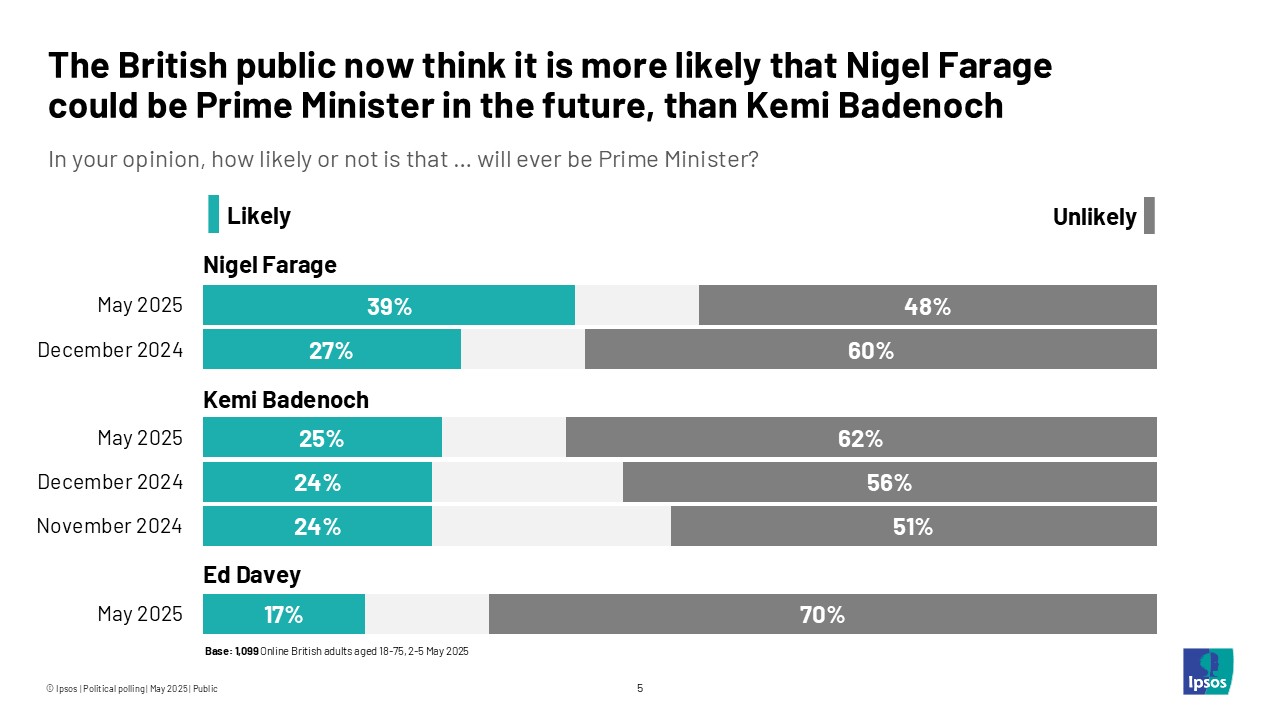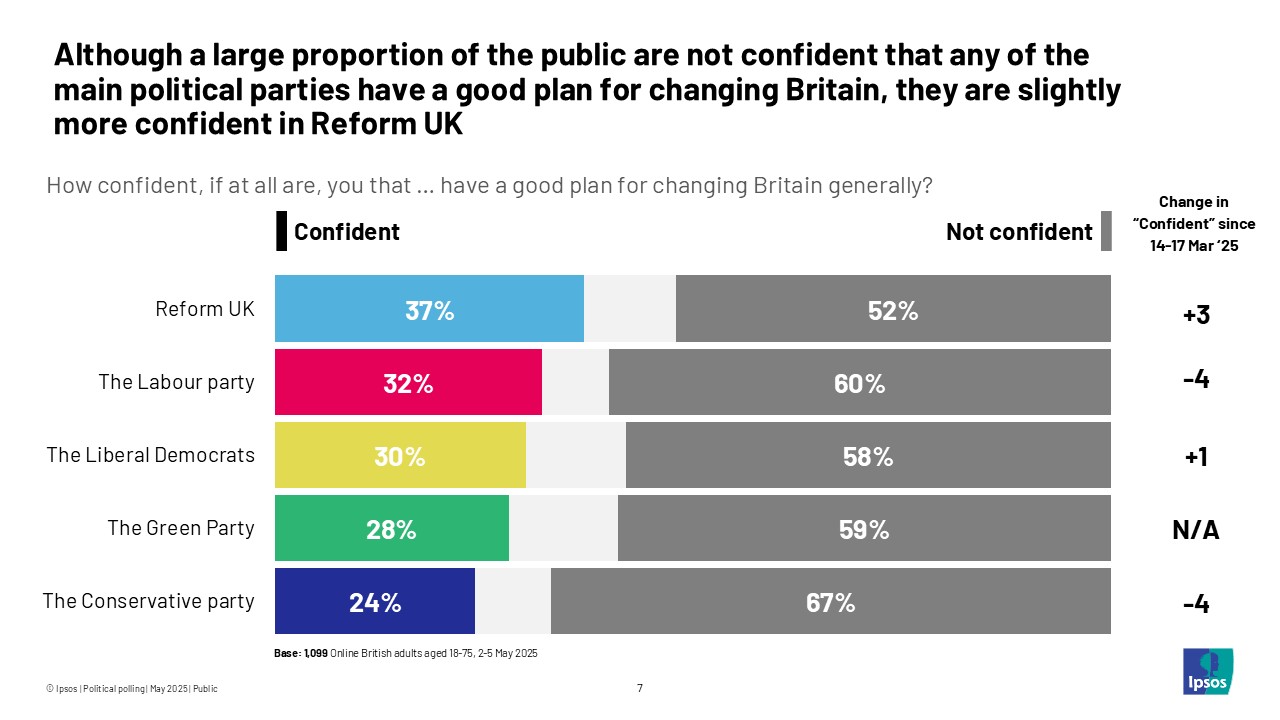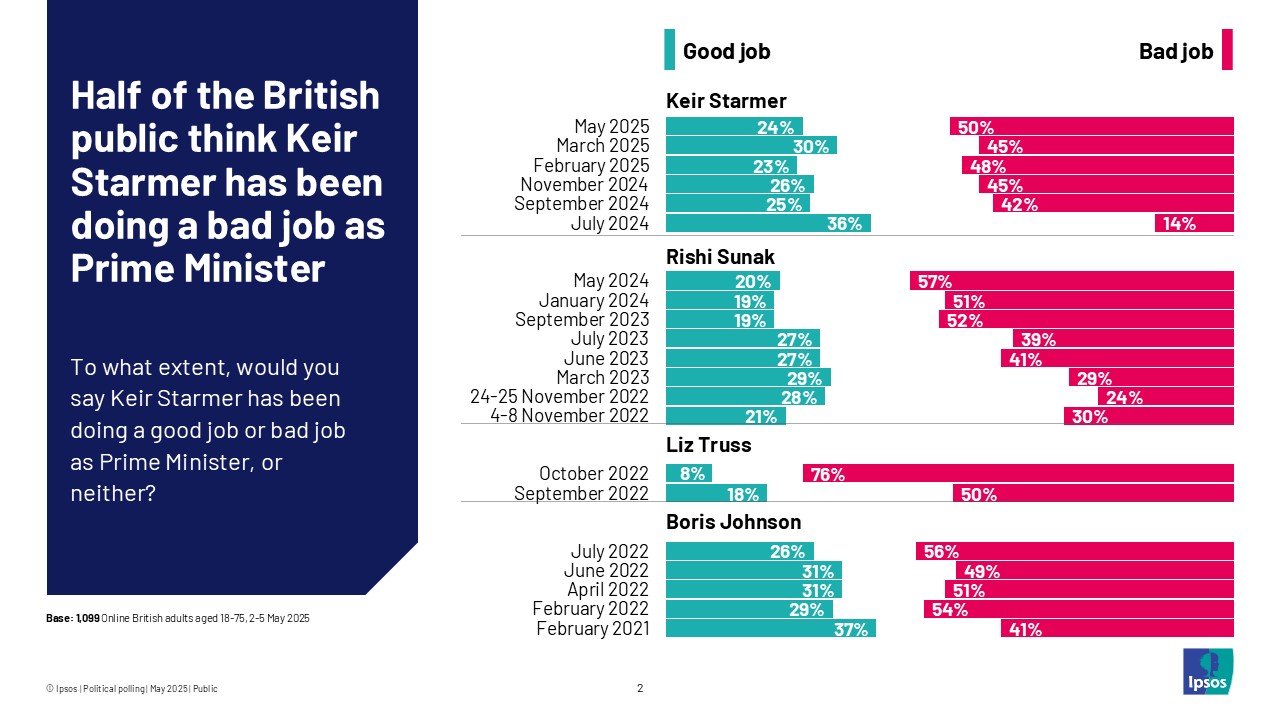British public now see Reform as main opposition over Conservatives, and believe Farage more likely to be PM than Badenoch
A new Ipsos in the UK poll reveals that the British public is slightly more likely to consider Reform UK the main opposition and believe that Nigel Farage is now more likely to become Prime Minister than Conservative leader Kemi Badenoch. This is as dissatisfaction with the Labour government and Prime Minister Keir Starmer remains high.
Farage and Reform continue to gain ground
- Farage as a potential PM: The public perceives Nigel Farage as more likely to become Prime Minister in the future (39% likely) than Kemi Badenoch (25% likely), a significant shift since December 2024.

- Reform viewed as the opposition: The British public is now slightly more likely to consider Reform UK (37%) as the main opposition party (defined as the most likely party to lead a government in Westminster if Labour loses the next GE), ahead of the Conservatives (33%).
- Confidence in Reform: Although a large proportion of the public are not confident that any of the main political parties have a good plan for changing Britain, they are slightly more likely to be confident in Reform UK (37%) compared to Labour (32%). Just a quarter (24%) of Britons are confident that the Conservatives have a good plan for changing Britain, the lowest of any party polled. Reform UK also matches or is marginally ahead of Labour when Britons are asked about confidence in their ability to run the country (36% Reform UK, 33% Labour) and local councils (36% Reform UK, 34% Labour).

Dissatisfaction with Starmer and Labour remain high, while half aren’t confident Badenoch will lead Conservatives at the next election
- Starmer’s ratings slip as disappointment in Labour remains high: Half (50%) of Britons say that Keir Starmer is doing a bad job as Prime Minister, up from 45% in March in the aftermath of his response to the Oval Office meetings. A quarter (24%) believe he is doing a good job. 57% say they are disappointed with what Labour have done in government thus far (including 1 in 3 – 36% - of Labour’s own 2024 voters).

- Starmer and Badenoch’s future: Public opinion is split on whether Starmer will remain Labour leader until the next general election (43% confident, 43% not confident). This is a 9pt drop in those who think he will still be leader from November. Half (49%) also lack confidence that Kemi Badenoch will still be leading the Conservatives at the next election (32% confident), which is also up from 38% who were doubtful about her continued leadership of the party in November 2024.
Commenting on the findings, Kelly Beaver, Chief Executive of Ipsos in the UK and Ireland, said:
For the British public, Nigel Farage is seen as the main leader of the opposition now. For someone who leads a party of five MPs, and rejoined British politics 12 months ago, that is pretty remarkable. For a long time, Farage’s appeal was as a disruptor, in touch with more traditional values and someone who would get immigration under control. But in the last few months he has transformed in the eyes of the public, with Farage now comfortably seen as the most likely of him, Badenoch or Davey to become prime minister. That’s not to say Reform UK in government is inevitable or even very likely, for now. But an important threshold has now been crossed in the minds of the British public – if they think a party can win, it may make them more likely to actually vote for them. Reform UK now have as much public confidence as a party of government as their more traditional rivals, on top of being seen as a party for change – which offers them both big opportunities and challenges ahead of the next election.
Technical note:
- Ipsos interviewed a representative sample of 1,099 adults aged 18-75 across Great Britain. Polling was conducted online from the 2nd-5th May 2025.
- Data are weighted to match the profile of the population. All polls are subject to a wide range of potential sources of error.




